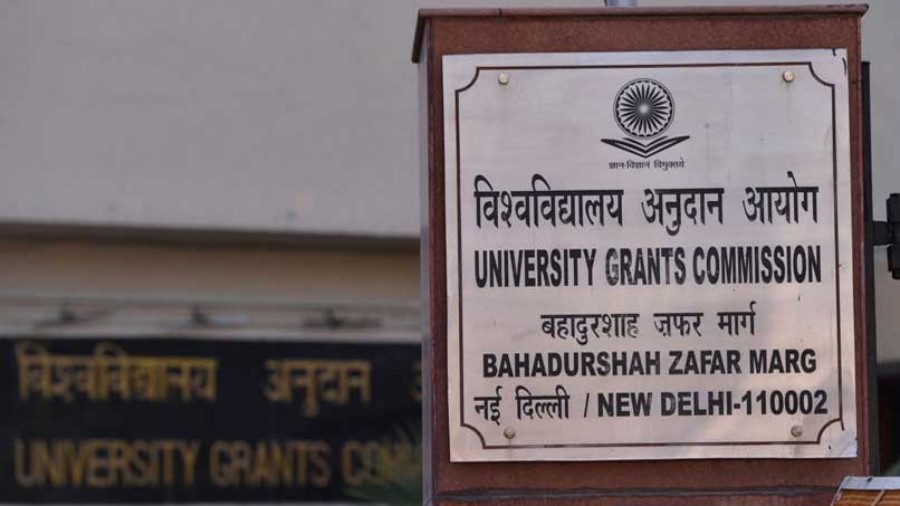The University Grants Commission is set to be left without its top two functionaries from this week, entering a phase of what academics described as “ad hocism”.
With UGC chairperson D.P. Singh’s term set to end next week and the vice-chairperson’s post vacant for over eight months since Bhushan Patwardhan’s resignation, the spectre looms of a bureaucrat calling the shots at the autonomous higher education regulator for the first time.
Condemning the education ministry’s tardiness in filling vacant UGC posts, former UGC secretary R.K. Chauhan said: “It appears that education is not a priority with this government.”
Similar complaints have been heard over the NDA government’s chronic lethargy in filling top posts at the central universities and the IITs, many of which have remained headless for months — sometimes for more than a year.
The UGC has a sanctioned strength of 12 members, including two ex-officio members: the higher education secretary and an additional secretary from the department of expenditure. It currently has eight members, including Singh.
Under the UGC Act, the regular chairperson cannot be a government official. If the chairperson’s post is vacant, the vice-chairperson is given charge. If both posts are vacant, the Centre can appoint any member to act as chairperson for not more than six months.
Sources said the government was likely to give charge to higher education secretary K. Sanjay Murthy till a regular chairperson was appointed. Never before has a bureaucrat helmed the regulator.
“If a government official is given charge, it will set a wrong precedent and dilute the autonomy provided to the UGC under law,” a senior professor with a central university said, seeking anonymity.
Chauhan wondered why the government had not advertised the post of vice-chairperson in eight months.
“Also, the government knew the chairperson’s tenure was ending in early December but it sought nominations (from academics) only a month ago, on November 1,” he said. “Now some ad-hoc arrangement will be made.”
The last date for sending nominations was November 30. Now the government has to set up a search panel that will screen and interview candidates and make recommendations for the government to approve. The process normally takes two to three months.
An email to the education ministry seeking the reason for the delays in the appointments remains unanswered.











